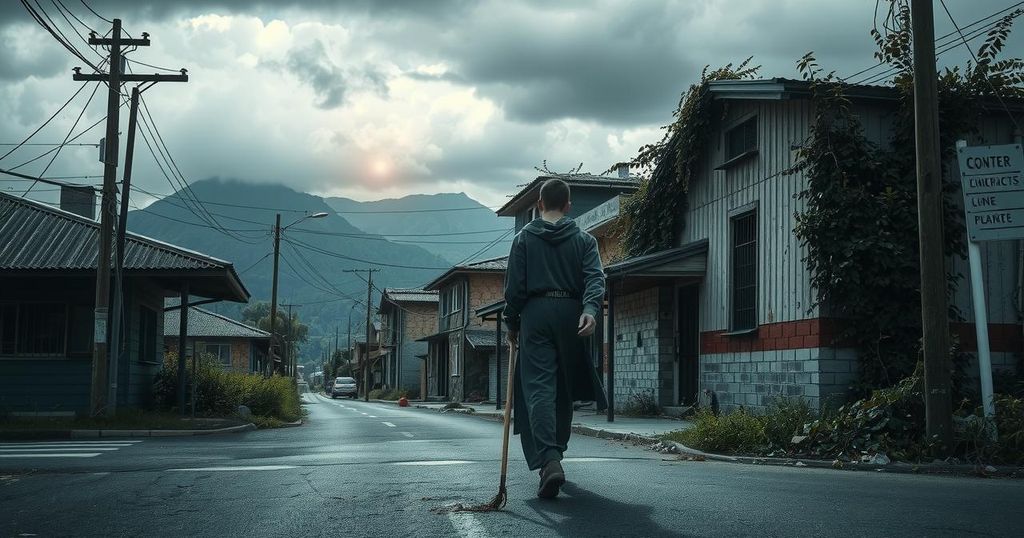Escalation of M23 Insurgency in the Democratic Republic of Congo: A Humanitarian Crisis and Geopolitical Implications

The Democratic Republic of Congo faces a severe insurgency as the M23 rebel group escalates its campaign, claiming territory and provoking a humanitarian crisis. Over 400,000 have been displaced amidst ongoing violence. The international response has been criticized as weak, raising concerns about geopolitical implications in a region rich in valuable minerals, particularly cobalt, vital for technology. Meanwhile, Rwanda’s role and historical context deepen tensions within this volatile landscape.
A severe insurgency is unfolding in the Democratic Republic of Congo (DRC) as the rebel group M23, aiming to expand its territorial control, has intensified its aggressive campaign from its base in Goma. This represents the most significant escalation in the region’s ongoing conflict, which has been active for over a decade. The United Nations has issued warnings that the situation could deteriorate further into a broader war in this historically war-torn area.
M23’s leader, Corneille Nangaa, has declared ambitions to advance to the DRC’s capital, Kinshasa, following the group’s recent control of Goma. In response, the Congolese government, led by President Félix Tshisekedi, is mobilizing its forces to reclaim lost territory. The conflict, deeply rooted in the DRC’s history since its independence in 1960, has escalated significantly in the past few years, increasing the displacement crisis.
The violence has exacerbated humanitarian conditions, with over 400,000 individuals displaced in just one month, as reported by the United Nations. The resurgence of M23’s territorial ambitions threatens to restore control over regions not held since the end of two major wars that resulted in millions of civilian casualties. Critical conditions in Goma have led the government to label the offensive a “declaration of war” by Rwanda.
International responses to the ongoing crisis have been muted, highlighting concerns over global credibility in dealing with such crises. Romania has seen its mercenaries involved in the conflict retreat to U.N. bases for protection due to the intensity of the fighting. As international officials engage, the Western nations face scrutiny over their limited involvement, raising fears of losing influence to rival nations, notably China and Russia.
The M23 group is predominantly composed of ethnic Tutsi and emerged from long-standing ethnic tensions exacerbated by Rwanda’s 1994 genocide. The group accuses the Congolese government of neglecting Tutsi protections and claims local grievances. Historically, M23 has received support from Rwanda, although the latter denies direct involvement.
China’s economic interests in the DRC, particularly its vast mineral resources, complicate the situation. The DRC is the primary global supplier of cobalt, a crucial metal for electronic batteries, with 80% of its extraction controlled by Chinese companies. Despite the humanitarian crisis, experts view immediate threats to mineral supply chains as currently manageable.
Rwanda’s historical context reveals a cycle of dependency from the West, which is facing increased scrutiny. While Rwanda has steered clear of a swift repeat of the 2012 conflict, it continues to receive international aid despite the ongoing upheaval. Calls from various international organizations indicate a potential reassessment of support, emphasizing the ongoing geopolitical dynamics at play.
The Democratic Republic of Congo (DRC) has a long-standing history of conflict, with its recent crisis linked to the activities of the M23 rebel group, characterized by ethnic tension and regional instability. The DRC holds vast mineral wealth, particularly in cobalt, which is vital for modern technology, making it a focal point for international interests. The conflict has resulted in massive humanitarian challenges, including displacement, violence, and a weakened government response, raising global concerns about its broader implications for regional stability and resource control.
The situation in the DRC remains critical as the M23 rebel group escalates its offensive and effectively claims territory amidst a backdrop of ethnic conflict and international neglect. The humanitarian crisis has intensified, leading to mass displacement and fatalities. With the international community’s cautious response and geopolitical rivalries under scrutiny, the future stability of the DRC and its mineral wealth hangs in the balance, bearing significant implications for global markets and regional security.
Original Source: www.nbcnews.com







